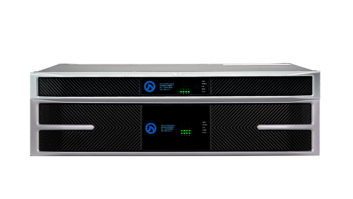
Recently, Twitter announced that its work from home policy was permanent, followed by Facebook saying it was working towards the same goal, and, now, it feels everyone is considering following suit. Frankly, I don’t want to hear anyone else say “We’re all going to be working from home from now on.”
I do believe “traditional” corporate offices may be a thing of the past, but I cannot possibly believe this is the beginning of our office space disappearing off the map. Is everyone building additions on their homes or what? When you look at companies like Facebook and Twitter, you’ll see they are uniquely positioned to have the appropriate infrastructure and culture to support a very large number of people working from home partially due to the fact that neither of these giants are even 20 years old.
One glance at the Fortune 500 company age metrics, and you will understand that the challenges in moving a massive segment of a workforce to a remote setting will vary greatly from company to company. You could argue that all companies are in the best position they have ever been in to go remote, I’m simply saying that is just the tip of the iceberg from a logistical standpoint.
The current global health pandemic obviously means that offices are going to change so that our environments will be able to meet the dynamic health and safety needs, but isn’t that just catalyst?
I have been in a variety of roles that had me completely working from home, and, over those five years, I have personally experienced the challenges a fully remote position can present regarding the social aspect of our workplace. The social relationships we have at work are incredibly important to building trust and a feeling of belonging—especially in a new work environment. The relationships we build with our teams play a substantial role in our success as we rely on one another throughout our careers. This is not to say relationships can’t be built remotely, but it’s different.
This is likely where people will argue that platforms like Zoom, Teams, Pexip, Bluejeans, and others are successfully scaling and, because of that, everyone is one-click away from being face-to-face. And those making that argument are correct. But, while these tools make it so that we can connect more easily, but that doesn’t necessarily make us more connected.
Communications tools are meant to supplement our physical and social interactions, not replace them. The conversations on video calls can easily become far more surface-level because our physical interactions are so critical to us understanding one another. Yes, body language counts and being on video helps with that, assuming you’re actually turning your camera on during virtual meetings.
However, on a video call you are far less likely to notice other things. Whether it is something simple like a colleague’s new outfit, or a more subtle thing, like the way they are carrying themselves through their day which might prompt you to ask how they’re doing and learn more about them.
The fate of our professional success lies not only in our own hands, but in the people around us. When we spend time with each other, without actually talking or without a dedicated purpose to interact, we learn more about each other, in addition to building trust and respect. In short, in-person interaction creates a feeling of responsibility for one another. So why would we so quickly accept the convenience of working from home in exchange for the importance of what our office environments facilitate? Simply because we discovered that we can?
A recent study suggested that the average work from home employee works an additional 1.4 days per month. Sometimes it’s not easy to disconnect from work and going to the office is an essential part of the routine to establish healthy boundaries between work and home life. Studies have shown time and time again that those boundaries allow people to have higher quality personal and social lives, which, in turn, makes them more productive. That is why today’s technology is focused on enablement.; user experience may be a cliché, but that’s what we’re after, improving situations and enabling people.
With help from technology, we can be very creative in how we design our workspaces. The modern office will be more about flexibility, in terms of both space and structure. For me, that means having my office along with the flexibility to work remotely. Sometimes a coffee shop is a more inspiring environment, sometimes the house is better because 7:30 a.m. sounds like a better wakeup time than 6:30 a.m. And, sometimes, I need my routine, my space, and my people … and all of those things are not in a coffee shop or at my house, they are in my office.
Joe Dunbar is a technology professional invested in mutual partnerships that build long-lasting growth and opportunity for everyone involved. He is a senior account executive at Diversified and a member of the 2020 Class of SCN’s The Nine.










